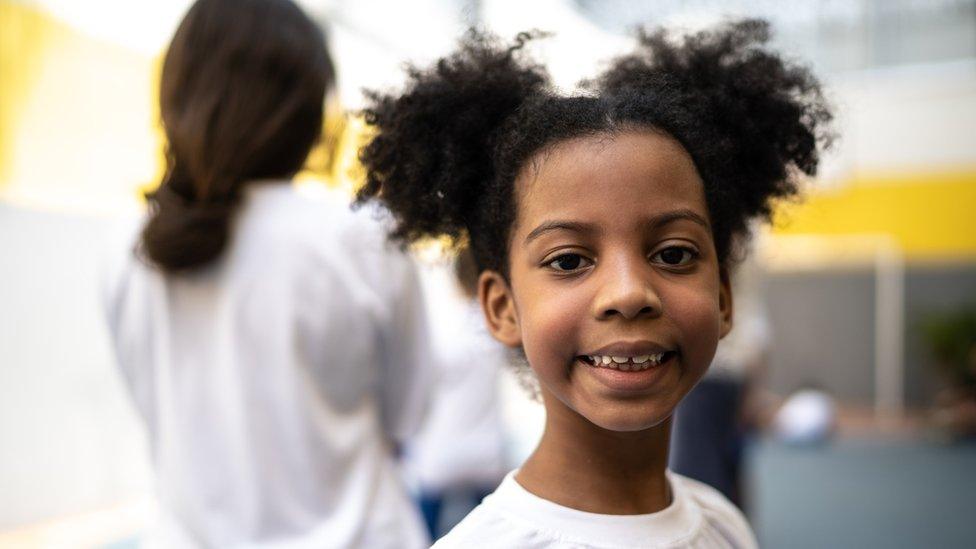Halo Code: What is it and how does it protect afro hair?
- Published
- comments

Schools in the UK are being asked to sign up to a new code that hopes to end discrimination against children with afro-textured hair.
According to the Halo Collective - the organisation which wants to end hair discrimination - 58% of Black students experienced name calling or uncomfortable questions about their hair at school.
The Halo Code is a campaign pledge, signed by schools and businesses, that promises members of the Black community that they have the "freedom and security to wear all afro-hairstyles without restriction or judgment".
This includes any child who wishes to wear their hair however they choose to in school.
Head teachers can sign the code which means everyone in the school recognises and celebrates all staff and students' identities.
Kids speak about their afro textured curly hair 'My hair is unique, I feel really lucky' (2018)
The way you style afro-textured hair sometimes depends on the texture of the hair itself - it can't always be styled in the same ways that straight hair often is.
Some of the ways afro-textured hair is styled may also be against the rules in some schools.
The organisation behind the Halo Code say that official or unofficial rules that ban or limit certain hairstyles, mean that people have to choose "between their education or career on the one hand, and their cultural identity and hair health on the other."
Race-based hair discrimination has been illegal in the UK since the Equalities Act became law in 2010 but the Halo Collective says it is still a really big problem.
A recent survey said 46% of parents say their children's school uniform policy penalises afro-hair.
Edwina Omokaro, co-Founder of the Halo Collective said, "No one should have to change their natural or protective hairstyle in order to thrive. Together, we will ensure that all Black people can learn, work, and live free from hair discrimination."
- Published9 December 2020
- Published3 December 2020
- Published11 February 2020
